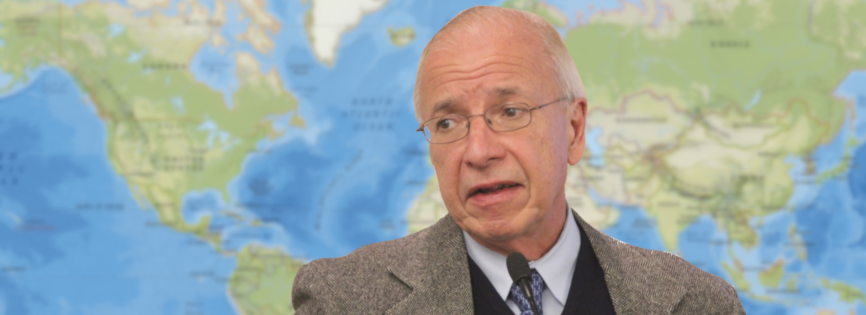You are in:
Laureates
Start of main content
Alejandro Portes
Princess of Asturias Award for Social Sciences 2019

Alejandro Portes (Cuba, 13th October 1944) began his studies at the University of Havana (1959-60) and subsequently moved to Buenos Aires, where he enrolled in Sociology at the Catholic University of Argentina (UCA). He continued his studies at Creighton University (USA), obtaining American citizenship in 1968. He received his PhD from the University of Wisconsin-Madison (USA) in 1970. He subsequently taught at the following universities: Texas (1971-1975), Duke (1975-1980), Johns Hopkins (1980-1996) and Princeton, where he began teaching in 1997 and where he was the Howard Harrison and Gabrielle Snyder Beck Professor of Sociology between 2003 and 2014. Likewise at Princeton University, in 1988 he co-founded the Center for Migration and Development, which he headed from 1999 to 2012. He has been a professor at the University of Miami since 2011 and an emeritus professor at Princeton since 2014. He is a member of the Centre for Research and Analysis of Migration, University College London. He has been a member of the advisory board of the Max Planck Institute for the Study of Religious and Ethnic Diversity and visiting professor at several European and Latin American universities.
Considered one of the most prestigious international sociologists, Portes has stood out for his research activity in the fields of international migration, economic sociology, comparative development, the urbanization of developing countries and social marginality. An advocate of the New Economic Sociology, his studies have become a source of reference to guide and organize the empirical research of social scientists worldwide. His work over the last four decades has helped divulge and understand the adaptation of immigrants in their destination countries. He began to carry out research into this field during his time as a professor at the University of Texas, when over the course of six years he interviewed 1,500 Cubans who had emigrated to Miami. The study showed that they had created a community composed exclusively of highly entrepreneurial Cuban immigrants which became more independent from the rest of the city as its ranks grew with more compatriots. This situation, which he called the “ethnic enclave”, was reflected in the book Latin Journey: Cuban and Mexican Immigration in the United States (1985) and in the later work entitled City on the Edge: The Transformation of Miami (1993).
In 1992, he embarked on a long-term project, the “Children of Immigrants Longitudinal Study” (CILS), for which his department interviewed more than 5,000 children, carrying out a follow-up survey when they became adolescents. A conclusion of this study was that the so-called second generation integrated well into American society. However, it also detected a risk of failure to adapt in the children of illegal immigrants with a low level of schooling, a problem for which he recommended working with parents in their respective communities. He published this study jointly with Ruben Rumbaut in Legacies: The Story of the Immigrant Second Generation (2001), which won several American Association of Sociology awards. He carried out a similar analysis in Spain in 2013, in collaboration with the Ortega y Gasset University Institute, which included almost 7,000 interviews. Among other conclusions, the study revealed that 50% of the children of immigrants identified as Spaniards. In 2016, he published the second part of the study, Spanish Legacies: The Coming of Age of the Second Generation.
He is a member of the editorial boards of the Revista Española de Sociología, Actes de la Recherche en Sciences Sociales, International Migration Review, Revista Mexicana de Sociología and Ethnic and Racial Studies and is the author of some 250 articles and more than 30 books.
Member of the American Academy of Arts and Sciences and the US National Academy of Sciences, Portes has been president of the International Sociological Association and the American Sociological Association and is president-elect of the Eastern Sociological Society. He holds an honorary degree from The New School for Social Research, New York, and from the Universities of Wisconsin-Madison (USA) and Genoa (Italy). He is also an honorary professor of the University of Alicante and New York University-Abu Dhabi. In 2008, he received the annual award granted by the American Academy of Sciences.
End of main content
Sección de utilidades
Fin de la sección de utilidades
- Legal document Legal document (Access key 8)
- | Privacy policy Privacy policy (Access key )
- | Social networks ???en.portal.pie.menu107.title???
- | Cookies ???en.portal.pie.menu110.title???
- | Site map Site Map (Access key 3)
- | Contact Contact (Access key )
- | XHTML 1.0
- | CSS 2.1
- | WAI 'AA
© Copyright 2024. FUNDACIÓN PRINCESA DE ASTURIAS
 Minutes of the jury
Minutes of the jury


